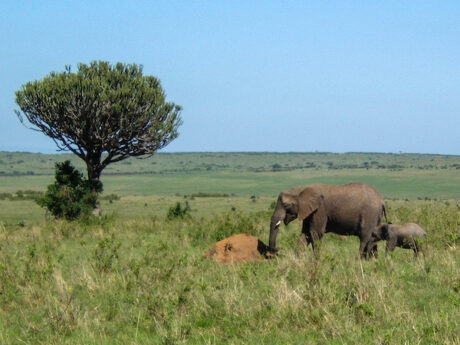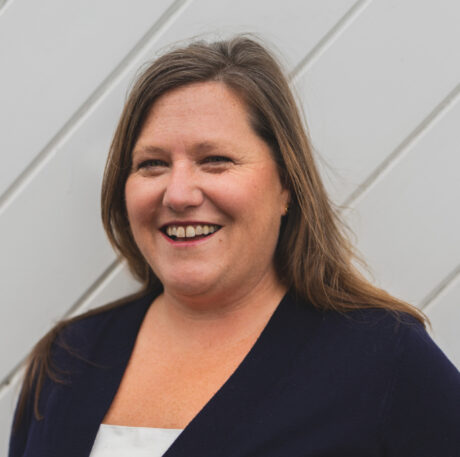Elephants in the Zoom
Elephants in the Zoom
by Elizabeth Lynn
As crises are likely to do, the Covid-19 pandemic has graced us with several clever twists on familiar phrases. There is the Coronacoaster (mood swings while in lockdown). Coronials (children conceived during the pandemic). The Quarantini (no explanation needed, right?). My own favorite, however, is the Elephant in the Zoom (the thing no one is talking about, but everyone is thinking about, during an online meeting).
That elephant may be something as inelegant as what appears to be a lampshade, or cat, affixed to the speaker’s head. But it may also be something more profound.
lampshade, or cat, affixed to the speaker’s head. But it may also be something more profound.
It may be the continuing uncertainty about how long we will be vulnerable to this pandemic, in our bodies, families, congregations, communities, even with a vaccine—and disagreements about how we should conduct ourselves in the face of that vulnerability.
It may be the growing awareness of how the pandemic is impacting bodies, families, congregations and communities differently, affecting people of color at a rate of two to one—and how that unequal suffering, borne of centuries of injustice, is showing up in the different experiences of the people on the Zoom.
It may be the recent presidential election, with its stark illumination of deepening divides in the ways Americans read reality—and how those divisions might be present among colleagues in ways not previously understood.
It may be the unpredictability of finances in a recession, on top of longer-term challenges that were already being felt in organizational budgets—and what that might mean for one’s own job security and economic well-being.
For some of us, it may be the stress of working from home, with no buffers between work and family—while for others of us, it may be dread of impending demands to return to the office for no foreseeable benefit to life, limb or work.
In reality, for most organizations at this time, all those elephants are likely somewhere in the Zoom. Our unspoken questions are more profound, and at once more widely shared and more acutely personal, than our spoken ones.
While understandable, talk of “returning to normal” is going to choke off the conversations that need to happen about these elephants. Instead, they need to be surfaced, respected, and talked about. Indeed, if addressed in an open and non-coercive way, our elephants can help us find our way forward toward needed improvement. There is, after all, an opportunity and a freedom to make change in a time of disruption. To jump from elephants to automobiles for a moment, it is always easier to steer a moving car than a parked car. So, rather than putting all our energy into getting the car parked again back in the same spot, how can we steer wisely into the world ahead?
One thing we can do is to ask better questions of ourselves and one another in our meetings. In so doing, we would be following the lead of our own religious traditions, which are invariably full of excellent questions and question-askers. Reflecting on the angels of the Christian gospel in a recent blog post, philanthropic leader Fred Smith observes that “In the moment when people are grief-stricken, confused and immobilized the angels are asking questions that seem to be more disturbing than comforting.” Better questions push us beyond our comfort zone (or comfort Zoom). They are bigger questions, for which we do not know the answer. They are questions no one is asking but everyone is holding.
Another thing we can do is set aside time for reflection on those questions during our online meetings, with help from a ‘third thing’ we are discussing, and no expectation that we will all agree on what it means. And again, in so doing, we will be following the lead of our religious traditions, which teach us to attend to scripture and story in conversation with one another with an attitude of humility. One such ‘third thing’ might be Fred Smith’s fine meditation on angels and their hard comfort, linked above. Another third thing, especially aligned to the coming holiday, might be O. Henry’s 1907 story, Two Thanksgiving Day Gentlemen, which invites us to think about American traditions of giving in the midst of inequality.
What are the elephants in your Zoom? What damage are they doing by roaming around unaddressed? By contrast, what is in motion now that could invite positive, needed change if we start talking about it today?
Expanded Perspective
Shannon Hopkins, Co-Founder & Lead Cultivator, RootedGood
In The Unsettling of America, Wendell Berry introduces us to two very  different character types: the exploiter and nurturer.
different character types: the exploiter and nurturer.
The standard of the exploiter is efficiency; the standard of the nurturer is care. The exploiter’s goal is money, profit; the nurturer’s goal is health — his land’s health, his own, his family’s, his community’s, his country’s. Whereas the exploiter asks of a piece of land only how much and how quickly it can be made to produce, the nurturer asks a question that is much more complex and difficult: What is its’ carrying capacity? (That is: How much can be taken from it without diminishing it?)
In a time when most organizations are asking how much we can do on Zoom, Elizabeth Lynn is asking us to make sure we are embodying a nurturing ethic. To think about what it means to care for our colleagues in this time. To ask the deeper more complex questions about how our organizational life is forming us and our communities in this season. To make room for wonder and mystery that will lead us to be more creative for the future. I believe that is why she asks the question: ‘how do we steer wisely into the world ahead instead of longing to go back?’ Putting on the mindset of the nurturer and making space for silence, rest, and reflection will help us. Surely this is the time to lean into these spiritual practices.
Another spiritual practice we might lean into is the taking of sabbath—or, in Berry’s agricultural imagery, letting the land grow fallow, to rest and regenerate.
In agriculture the fallowing of land allows the nutrients from deep below to rise to the surface. I have a friend with a woodland in the southeast of England, and earlier this year we were talking about forest principles. In a wood, he explained, you need to cut down a tree to make room for the light to come in, so that new things can grow, so that the soil can be replenished. You have to create a clearing. You have to choose to do less, not more.
Berry goes on to say, “The competence of the exploiter is in organization; that of the nurturer is in order – a human order, that is, that accommodates itself both to the other and to mystery.”
Which competence will you claim in this extended season of Zoom: that of organization, or of order? We can keep going faster, harder, doing more, celebrating how well we are all doing in working remotely and taking all our services online. But let’s make sure we aren’t being exploiters. Let’s make sure we are embracing our limits and caring for one another. Let’s make sure we are making space and creating a clearing for new things to grow.
Subscribe
Insights, a bi-weekly e-newsletter, is a resource for the religious community and fundraisers of faith-based organizations that provides:
- Reflections on important developments in the field of faith and giving
- Recommended books, studies and articles
- Upcoming Lake Institute events
